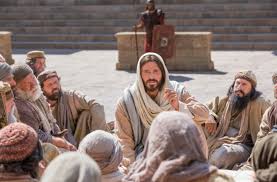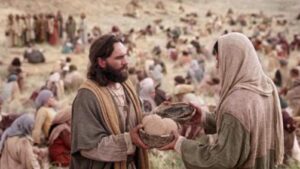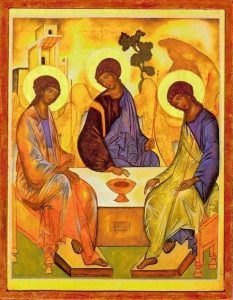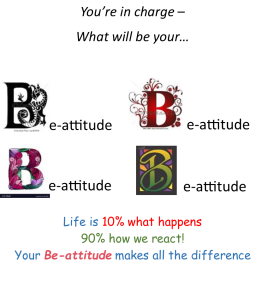First, let me speak a bit about World Mission Sunday which is celebrated in parishes this weekend. The Society for the Propagation of the Faith was founded in 1882 by a young French laywoman, Pauline Jaricot, to aid the Church in preaching the Gospel in areas of the world where it had not been before. In our diocese, in answer to our baptismal call, the Propagation of Faith, Catholic Relief Services and Catholic Charities continue that mission. The “people in the pews” contribute their prayers, moral support and financial help, that collectively feeds, cares for and nourishes bodies and spirits of the needy all over the world. In the Responsorial Psalm we will pray repeatedly: “Give the Lord glory, glory and honor.” As always, the prayers of the faithful are the most treasured gift to the Missions – to God give the glory and thanks for the generosity of the “people in the pews” and missionaries, lay and religious all over the world.
Mention of the Propagation of the Faith reminds me of a story about another call to mission told to me by our late Sister Pauline. (Some may recognize the story.) When Pauline was a young Sister in community, she and Sister Rita O’Connell embarked on a “begging tour” up the east coast of the U.S. When they reached Boston, Sister Rita told Sister Pauline they were going to visit a “very nice” bishop – whose name just happened to be William O’Connell (notice the family name?). However, it seems when they arrived unannounced it was the auxiliary bishop … the future Cardinal Spellman in the office that day. (You may recognize his name as the author of THE FOUNDLING.) Sister Pauline was “parked” with the secretary – they became life-long friends. Pauline said hours went by – no Rita. When the secretary went to check, it seemed Sister Rita had exited another door and left for Ireland! Now there is proof of such a trip in Sister Rita’s passport, stamped June 14, 1934 – a steamship passage that would have taken 7-10 days each way. Bishop Spellman and his secretary quickly came to Sister Pauline’s rescue. She related happy memories of the “few months” (as she described it) at the home of the secretary’s family on Commonwealth Avenue. She kept up with the sons many long years. And, yes, eventually, Sister Rita did return and they continued their tour across the U.S.
However, not too long after their return to Holy Name, the superior was informed that their “begging tour” had not been approved by the Propagation of the Faith and the funds were to be returned. The rest of the story is lost to history awaiting a deeper dive in the archives.
But to focus on the Gospel…. Pity Jesus – what a set up. According to Matthew’s account it sounds quite deliberate. “The Pharisees plotted that they might entrap Jesus in speech.” Then comes the set up. They open the encounter with: “We know you are a truthful man and that you teach the way of God … and you are not concerned with anyone’s opinion.” Ever felt like someone was trying to program your response? I had a friend who more than once would start out sounding like she was looking for advice. But soon her tune would change: “Now, I’ve been praying about this, and God told me that this is what I – or you – should do.” That said, who am I to argue with God?
Or perhaps you’ve been handed a gift by someone who says: “I just know you’re gonna love what I bought you!” She’s standing right there waiting for you to look in the gift bag or unwrap the present. So, smile! And, hope you can fake it if it’s not something you wanted all your life.
It’s obvious, in such instances, only one answer can be right. Are they talking to hear their own voice rather than looking for information, allowing for some feedback or a sincere response? By stating a preference up-front, all chance of discussion is cut off. What’s worse, the listener is unlikely to honestly answer my question unless they feel like taking up the task of a debate.
 What did Jesus do? He turned the tables on the group – the ones quizzing him were the anxious by-standers. “Why are you testing me.” He knew full well the answer. But he did not walk away. He gave them a chance to examine the coins in question. He knew the skill of engaging in a win-win dialogue. It’s true – He is God and would have the know-how. But being fully human, He had to have learned and practiced that skill somewhere. First in his family, then among neighborhood playmates, then, out, as they say “in the world.” Remember what is said about him when he was found in the temple? “After three days his parents found him in the temple courts, sitting among the teachers, listening to them and asking them questions.”
What did Jesus do? He turned the tables on the group – the ones quizzing him were the anxious by-standers. “Why are you testing me.” He knew full well the answer. But he did not walk away. He gave them a chance to examine the coins in question. He knew the skill of engaging in a win-win dialogue. It’s true – He is God and would have the know-how. But being fully human, He had to have learned and practiced that skill somewhere. First in his family, then among neighborhood playmates, then, out, as they say “in the world.” Remember what is said about him when he was found in the temple? “After three days his parents found him in the temple courts, sitting among the teachers, listening to them and asking them questions.”
Interactive, social skills, interpersonal communication skills are learned behaviors. They take practice. Learning how to “start – continue – stop” takes repetition and rehearsal. Jesus is the perfect model. As you lectio with Scripture notice his style. As Paul says in tomorrow’s Second Reading: “Our gospel did not come to us in word alone, but also in the power and in the Holy Spirit and with much conviction.” Jesus modeled what he prescribed. He prayed, he listened, he engaged others in verbal exchange. He complimented, he corrected, he appealed to the listeners’ best selves. He promoted self-learning and self-correction. And, yes, Jesus challenges us: “Why are you testing me?”










